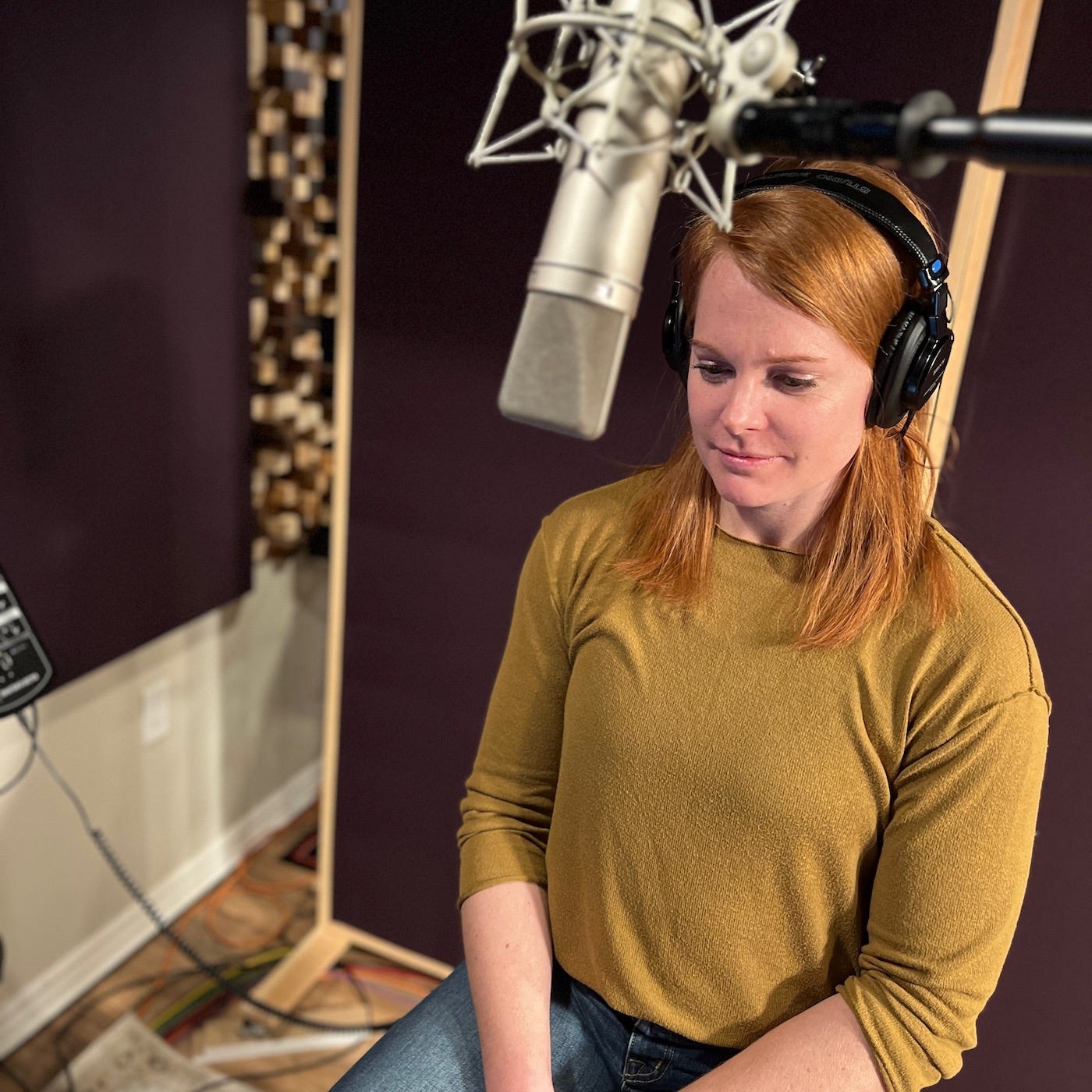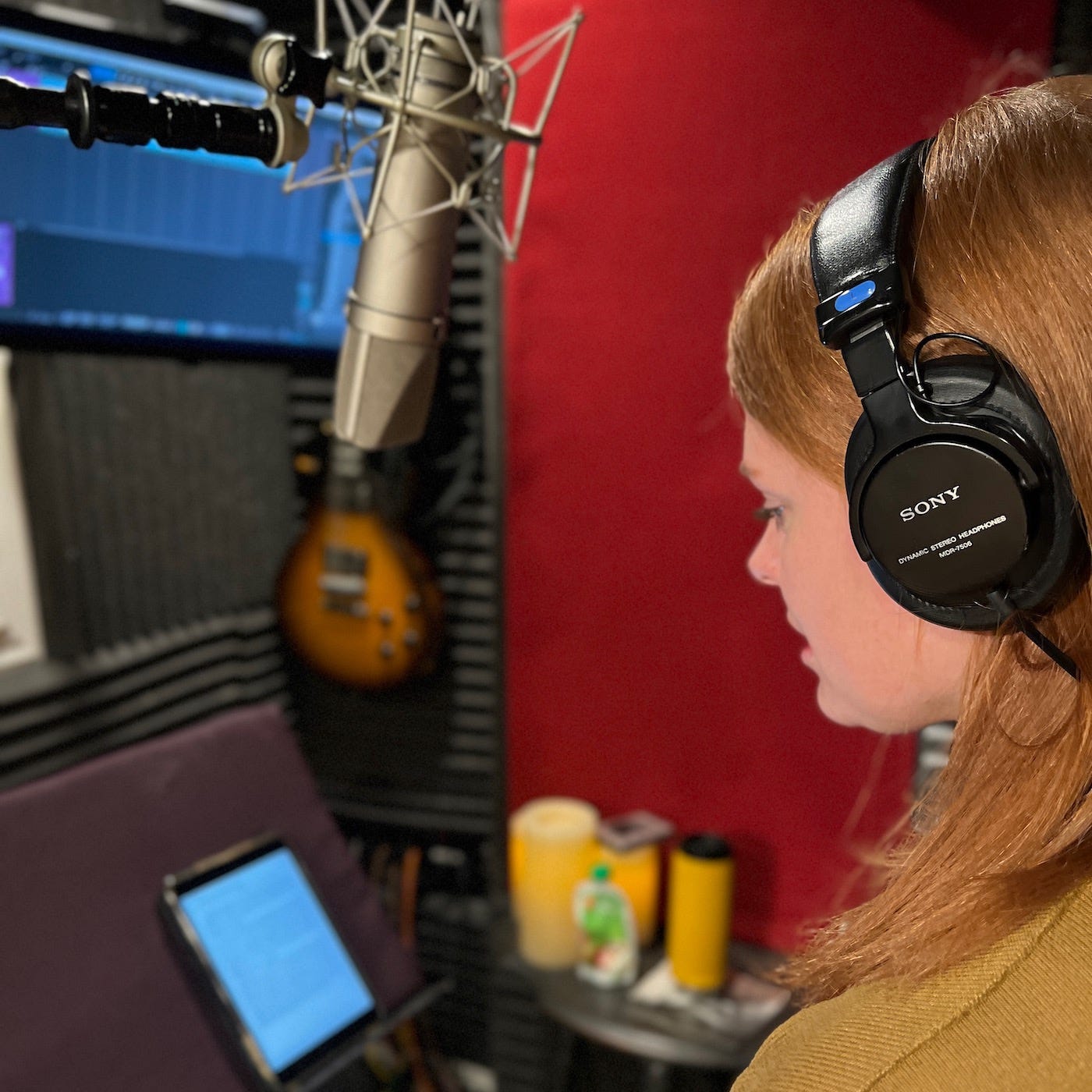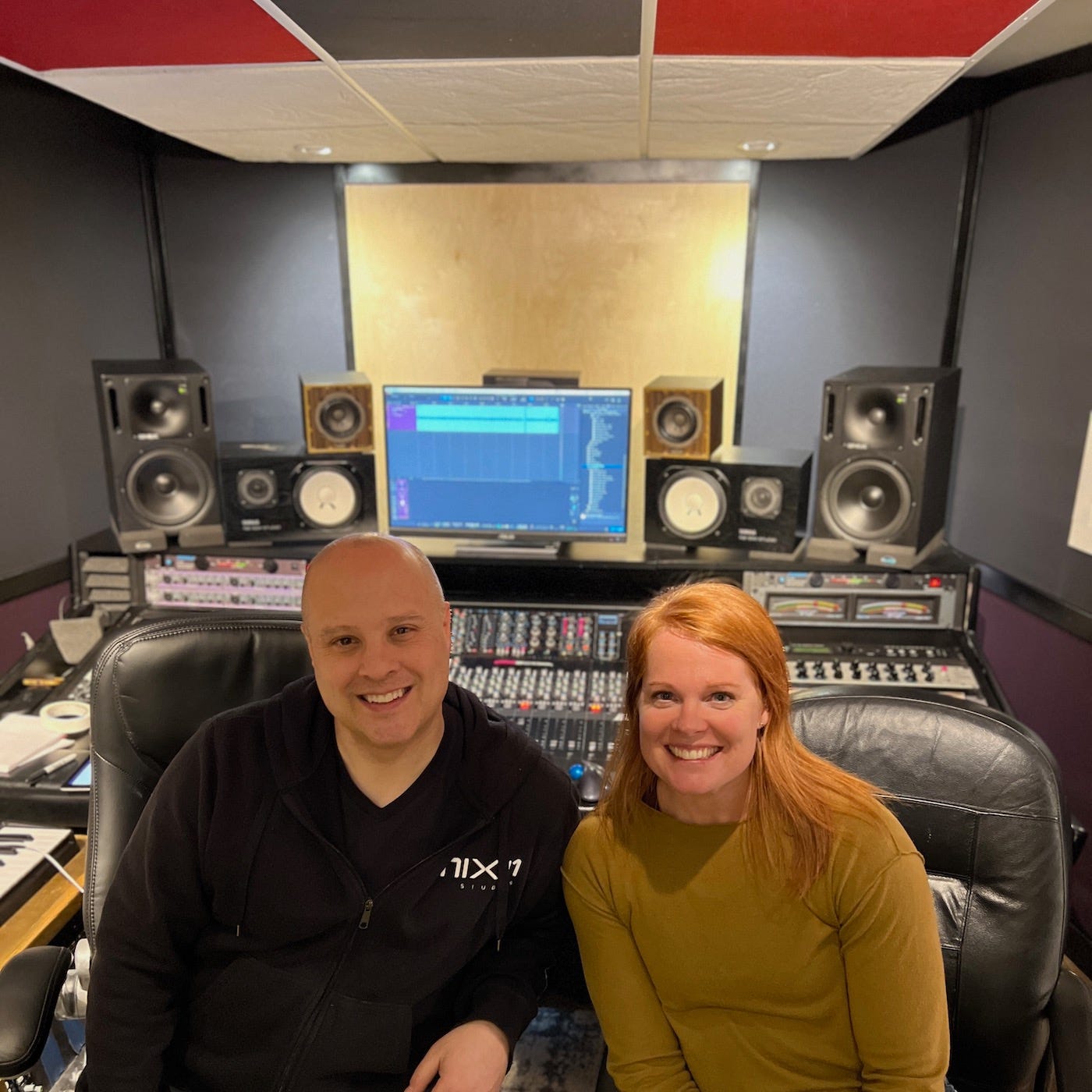Last May, I found myself sitting at an outdoor table at Bar Raval on College Street (one of the greatest restaurants in Toronto, in case you’re looking for a recommendation). I'd driven down to meet the acquisitions editor for my manuscript, the book publisher herself, and a fellow author for an in-person lunch and animated discussion about the publishing industry—something I know very little about.
After feasting on Spanish tapas, the publisher turned to me and said, "You know, I think you could record your own audiobook." I hadn't realized I was being tested vocally, but apparently I'd passed and was invited to submit a reading sample.
Later that week, I recorded myself reading several pages from my book, just using my iPhone, then sent the file to the audiobook production company. They said yes, I could be the reader, as long as I slowed down and relaxed a bit—advice I could, no doubt, apply to every aspect of my life.
And that's how I found myself in a recording studio last week in Barrie, ON, perched on a stool wearing headphones with a super expensive-looking microphone in front of me ("Used by Martin Short when he came in with Catherine O'Hara!" the sound guy told me proudly). An iPad sat on a music stand in front of me showing a PDF of the entire book, which I was instructed to read. Easy, right?
The audio engineer started by recording a minute of room sound, basically the ambient silence. This is used later to fill in spaces and cover any weird noises I might make in between sentences or paragraphs. He told me not to worry about any of those in-between sounds; the only troublesome ones occurred while I was speaking. Maybe everyone else knows more about recording than I do, but I was duly impressed by how fancy and high-tech the editing tools are.
When it came time to read, I had two people listening in—the guy who runs the recording studio, who sat in a control room on the other side of the glass and could see me, and the woman who runs the audiobook production company, based in Vancouver. She watched me on Zoom the whole time and could hear everything I said.
Then I started to read. Line by line, chapter by chapter, I chipped away at that book. If I made a mistake, I'd stop, pause, and start a sentence over again. Sometimes the two listeners would chime in and say, "Can you please do that sentence over again?" or "Your tone trailed off a bit there. Try again."
The most unexpectedly challenging part was dealing with my body. Any time my stomach growled or gurgled, the mic picked it up. Sometimes I only felt it (because I was reading with headphones on) and someone else would say, "Stomach noise!" So then I'd start the sentence over.
I had a lot more "mouth noise" than anticipated. It felt like a weird cycle of dryness and excessive saliva and vocal cords feeling raw from too much talking. The audio team would tell me to take a break, drink some honey-lemon tea ("Throat Cure" is apparently the best, recommended by an opera singer), or "take a hit of applesauce" out of one of those kiddie squeeze bags, as the guy kept telling me to do. It soothes the throat better than anything. I've never eaten so much applesauce in my life.
Even touching the iPad with too much enthusiasm resulted in background noise. “More pad, less nail!” the sound guy directed me through the headphones at one point. I scrolled more silently from then on.
We finished the 146-page book in two days—faster than anticipated, which pleased the producer. Both told me I read very smoothly, with relatively few errors. Curiously, I noticed I messed up more often when reading other people’s quotes in the book, rather than my own words. I think that’s because I write just how I speak, so the words flow more easily; or perhaps it’s just because I’ve obsessed over every sentence in that book almost to the point of knowing it by heart.
A week later, I returned to the studio for "pickups," which are lines where an editor has detected mispronunciations, erroneous words, background noise, or insufficient enunciation. There were 53 pickups to do. The sound guy played the "bad" version so I could hear where I'd made a mistake, then he said, "Recording," and I would say, "Pickup 1" and reread the line. It took an hour to work through them.
When we finished, the producer in Vancouver told me, "I really loved this book! And so did the audio editor. When she finished going through it, she texted me to say, 'This book was great! I've deleted social media apps from my phone!'" That was so nice to hear. These are the first people outside of a very small group of people who have read the book—and all feedback has been wonderfully positive so far.
With Daryl Sarnat of Mix11 Studios in Barrie, ON
It's a little hard to imagine someone wanting to listen to my voice in their ears for 7+ hours (when I said that to my husband, he looked at me pointedly and said, "Welcome to my life")—but the audiobook crew assures me it will sound fabulous by the end. They can do all kinds of things to mellow out my voice, smooth it, cover the breaths and gasps and who knows what else.
It's really exciting to think that there's now an audio version of Childhood Unplugged in the works, which can only broaden its reach and audience—and it was a fun experience to do the recording myself. I'm glad my voice passed the test, all those months ago.
Related: Childhood Unplugged Is on Its Way







What a fascinating experience you had in reading and recording the book you had written! Glad you were chosen to do it!
I wanted to do my own audiobook, and they talked me out of it! Congratulations.